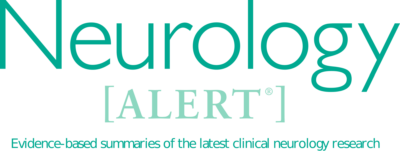
Neurology Alert – September 1, 2021
September 1, 2021
View Issues
-
MRI Changes and Functional Outcomes Among Adults with Severe HSV Encephalitis
Herpes simplex virus is a common cause of encephalitis worldwide. When treated promptly, the mortality rate decreases from 70% to 15%, but many patients remain disabled. This multicenter cohort study analyzed magnetic resonance imaging in patients diagnosed with herpes simplex encephalitis admitted to the intensive care unit to identify factors associated with poor outcome at 90 days.
-
What Is Focal CIDP?
Chronic inflammatory demyelinating polyneuropathy (CIDP) usually is diagnosed in patients who have a generalized disorder. However, there are focal syndromes that have been observed and diagnosed under different names that meet many of the clinical and electrodiagnostic criteria of CIDP and may be referred to as “focal” CIDP.
-
Proteomics: A New Method to Understand the Influence of Genetic Variation on Disease Pathogenesis
The combination of genome-wide association studies with the analysis of messenger ribonucleic acid and unique proteins in the brain, cerebrospinal fluid, and plasma can shed new light on our understanding of the genetic risks for the development of various neurological diseases.
-
Cortical Lesions Correlate with Disability in Patients with Multiple Sclerosis
In a long-term, 30-year follow-up study of a cohort of patients with multiple sclerosis who presented with clinically isolated syndrome, the investigators found that, among the variables assessed, the presence of cortical lesions had the highest association with long-term physical and cognitive disability.
-
Treatment of Seizures After Spontaneous Intracerebral Hemorrhage
The reported incidence of post-stroke seizures varies and appears to have a higher incidence following hemorrhagic stroke. Post-stroke seizures have been associated with a greater length of hospitalization, increased mortality, and complications. This study compared four seizure prophylaxis strategies to determine the greatest net benefit for patients with spontaneous intracerebral hemorrhage. There was a better outcome with short-term antiepileptic medication use compared to long-term use.
